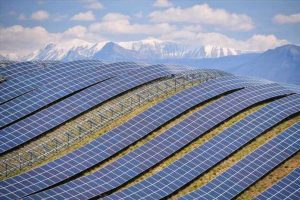Big Oil won't become major investors in renewable technology even as investment soars, IEA analyst says

- According to a report from the International Energy Agency, renewable electricity capacity additions in 2020 hit 280 gigawatts.
- This represents a 45% increase compared to 2019 and is the biggest year-on-year rise since 1999.
Oil companies will increase their investment in renewables over the coming years but won't become major investors in the technology that underpins the sector, according to a lead author of the International Energy Agency's Renewable Energy Market Update.
Speaking to CNBC's "Street Signs Europe" on Tuesday, Heymi Bahar explained there was a "changing momentum" when it came to oil firms investing in renewables.
"Today, our numbers show that only 0.5%, or even less than that, (of) renewable capacity installed is owned or contracted by oil companies, oil majors," said Bahar, senior renewable energy analyst at the IEA.
"However, we expect the investment of oil companies in renewable electricity to increase by tenfold in the next five years," he added.
"This is an important trend. Will they become the major investors of renewable technology? The answer is no. Will they increase their pace? Yes, for sure."
His comments come at a time when energy majors are facing intense pressure to develop emissions targets that are consistent with the Paris Agreement.
According to the IEA's report, renewable electricity capacity additions in 2020 hit 280 gigawatts (GW). This represents a 45% increase compared to 2019 and is the biggest year-on-year rise since 1999.
India's uncertain outlook
One chunk of the IEA's publication focuses on the situation in India, which is targeting 450 GW of renewable capacity by 2030.
"The Covid-19 impact on renewable energy deployment has affected India more than any other country," the report states, adding that, "pandemic-induced construction delays and grid connection challenges caused India's capacity additions to decline by almost 50% from 2019 to 2020."
And, while a ramping up of capacity is expected in 2021 and 2022, the current surge of Covid-19 cases in India "has created short-term forecast uncertainty."
This point was reinforced by Bahar during his discussion with CNBC. "Obviously, the situation is very critical there right now," he said, "and we will assess in our November report whether the impact is huge on renewables or not."
Source: Read Full Article
